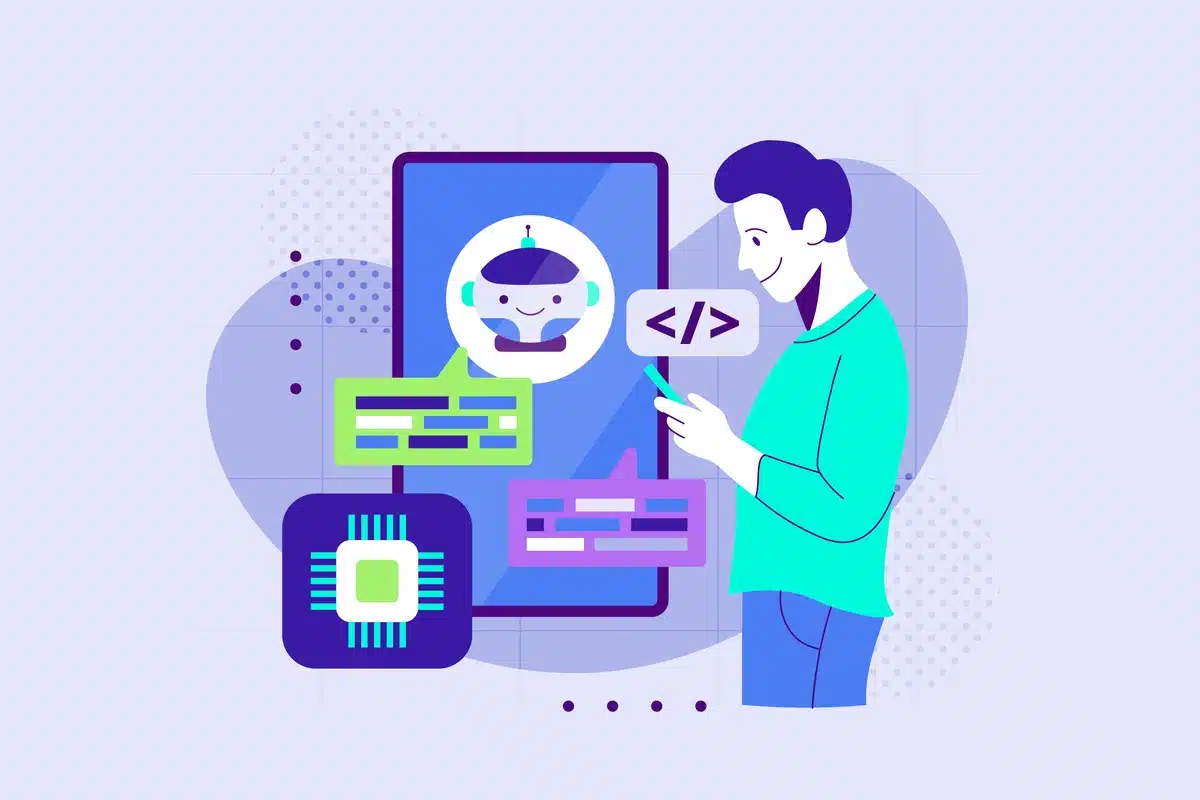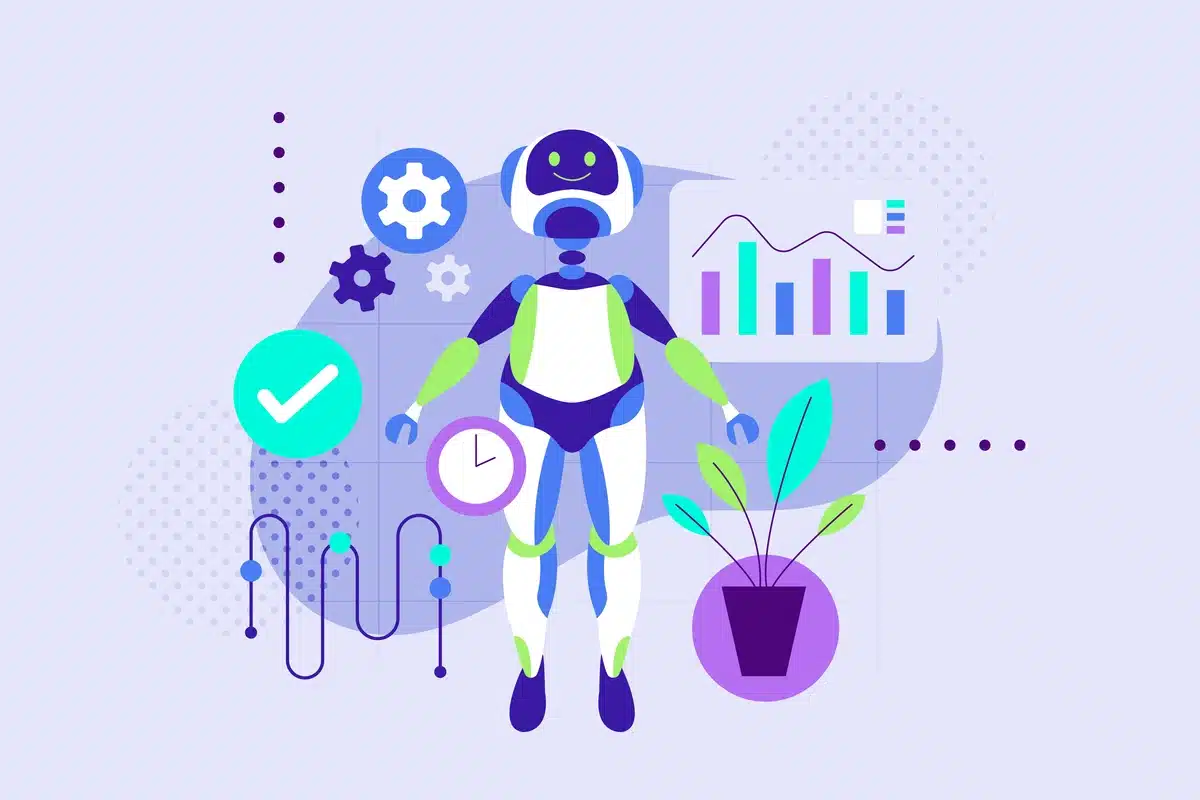AI and Machine Learning: The Next Big Thing in Shopify Ecommerce

Online shopping companies constantly seek fresh ideas to raise customer satisfaction, streamline workflows, and boost revenue. Artificial intelligence (AI) and machine learning (ML) drive this change, among other transforming technologies.
As we look further into the future of eCommerce, AI and ML are more than just terms. They are fundamentally changing how companies run on sites like Shopify. With the correct Computer Science Skills and Shopify Training, businesses may fully exploit these technologies to stay ahead in the competitive eCommerce industry.
This blog will explore how businesses can fully exploit these technologies to stay ahead in the competitive eCommerce industry.
Table of Contents
Understanding AI and ML
AI replicates human intelligence in computers and is designed to understand, learn, and make decisions. It comprises several subfields, such as robotics, machine learning, and natural language processing.
Artificial Intelligence (AI) is a branch of computer science that has led to the creation of algorithms capable of using data to make decisions independently, an aspect defined as Machine Learning (ML).
Instead of having the code that represents a particular task written into the system, the ML algorithms utilize statistical methods in their learning process that enable them to increase the efficiency of the outputs they produce for the various tasks as the amount of data they are subjected to increases.
The Significance of AI and ML in Ecommerce
In the context of eCommerce, AI and ML offer several benefits:
- Personalization: Personalization by employing artificial intelligence helps in improving the experience of the clients by arriving at a position of offering them more appropriate products to be in a position of passing proper messages to them.
- Efficiency: AI mainly helps to complete routine tasks with machines, cutting down on operational expenses and utilizing employees for such activities.
- Analytics: In business, ML algorithms work with a large volume of data to find patterns and make data-driven decisions.
- Customer Service: Implementing chatbots and virtual assistants in customer service offers a faster response rate and results in higher customer satisfaction than human interventions.
AI and Machine Learning Transforming Shopify

One of the top eCommerce platforms, Shopify, has embraced AI and ML to assist retailers in optimizing their online storefronts and providing outstanding consumer experiences. This is how AI and ML are significantly impacting Shopify eCommerce.
1. Personalized Shopping Experiences
Personalization is one of the most effective uses of AI in eCommerce. Using AI and ML, Shopify merchants can develop highly customized shopping experiences tailored to individual customers’ preferences.
2. Product Recommendations
Recommendation engines driven by AI examine browsing habits, past purchases, and customer behavior to recommend goods most likely to interest each user. This raises conversion rates and the average order value, improving the shopping experience.
For instance, if a consumer regularly buys exercise equipment or protein supplements, the recommendation engine may make relevant product recommendations. This focused strategy makes upselling and cross-selling possible, increasing revenue.
3. Personalized Marketing
AI-driven marketing automation solutions allow Shopify businesses to send customized emails, notifications, and ads. Segmenting customers based on their behaviour and interests may make marketing communications more engaging and relevant.
4. Inventory Management and Demand Forecasting
Successful inventory management is essential for online retailers. Understocking might result in lost sales opportunities, while overstocking can raise holding costs. Shopify inventory management is optimized largely because of AI and ML.
5. Demand Forecasting
To precisely forecast future demand, machine learning algorithms examine market trends, historical sales data, and exogenous variables like seasonality. This lessens the possibility of stockouts and overstock scenarios while assisting retailers in maintaining ideal inventory levels.
6. Automated Reordering
Artificial intelligence (AI) may automate the reordering process by anticipating when stock levels will run low and making orders with suppliers accordingly. This guarantees the constant availability of well-liked products, increasing client happiness and loyalty.
Enhancing Customer Service with AI

A vital component of online business is customer care, and artificial intelligence (AI) is changing how Shopify merchants communicate with their clients.
1. AI-driven chatbots
AI-powered chatbots answer frequent questions, help consumers through the buying process, and even manage returns and refunds, therefore offering quick support. These chatbots are open all the time, so clients always have assistance as needed.
2. Sentiment Analysis
AI can analyze consumer evaluations and feedback to determine sentiment and pinpoint areas needing development. This lets retailers deal with problems early, enhancing client happiness and brand recognition.
Fraud Prevention and Identification
Although eCommerce companies are frequently the targets of fraud, Shopify merchants can safeguard their online stores from fraudulent activity thanks to AI and ML.
1. Transaction Monitoring
AI algorithms monitor real-time transactions, spot suspicious patterns, and indicate possible fraud. This aids retailers in taking prompt action to stop fraud, lowering chargebacks and associated losses.
2. Identity Verification
During the checkout phase, customers are authenticated using AI-powered identity verification systems, guaranteeing the transaction’s legitimacy. This protects the client and merchant by introducing additional protection.
Optimizing Pricing Strategies
Dynamic pricing instantly changes prices in response to market conditions, competition, and other considerations. Thanks to AI and ML, Shopify retailers can successfully implement dynamic pricing.
1. Competitive Analysis
Artificial intelligence (AI) systems examine industry trends, rival pricing, and customer behaviour to suggest the best price methods. By doing this, retailers may maximize their profit margins and maintain competitiveness.
2. Price Optimization
ML algorithms may evaluate a range of price points to find the best price plan for each product. This helps strike the ideal balance between attracting business and preserving profitability.
Visual Search and Augmented Reality

On Shopify, cutting-edge AI apps like AR and visual search are improving the online purchasing experience.
1. Visual Search
Customers can upload photographs and use visual search to identify products that match or look like the image. Thanks to an AI-powered tool that streamlines the search process, customers can locate precisely what they are seeking more easily.
2. Augmented Reality
Augmented Reality (AR) allows shoppers to see things in their natural surroundings before purchasing. Customers can see how a piece of furniture would appear in their living room or how a pair of shoes would fit on their feet, for instance. This engaging experience can decrease return rates and significantly increase client confidence.
Enhancing SEO and Content Creation
Shopify’s retail approach to SEO and content production is also changing due to AI and ML.
1. SEO Optimization
Artificial intelligence (AI) driven solutions for SEO optimization evaluate search engine algorithms and offer recommendations for improving product listings, blog entries, and other material for higher search engine ranks. This aids retailers in growing their online presence and drawing in more organic traffic.
2. Automated Content Creation
AI can create blog entries, social media postings, and product descriptions, saving businesses time and effort. The tone and style of AI-generated content may be changed to align with the brand, guaranteeing consistency across all platforms.
Case Studies: AI and Machine Learning in Action on Shopify
Case Study 1: Personalized Shopping with AI
A fashion apparel-focused Shopify store implemented an AI-powered recommendation engine. By looking at consumer behaviour and preferences, the store offered tailored product recommendations on the homepage, product pages, and email marketing campaigns. As a result, conversion rates rose by fifteen percent, and the average order value increased by twenty percent.
Case Study 2: Inventory Optimization with Machine Learning
An electronics store using Shopify incorporated an ML-based demand forecasting tool. The tool examined market patterns and past sales data to forecast future demand. Consequently, the shop reduced stockouts by thirty percent and holding expenses by twenty-five percent by optimizing its inventory levels.
Case Study 3: Enhancing Customer Service with AI Chatbots
A Shopify health and wellness store used an AI-powered chatbot to answer consumer questions. In addition to handling returns and offering prompt answers to frequently asked inquiries, the chatbot also helped with product recommendations. The store’s customer assistance expenses were lowered by forty percent, and customer satisfaction ratings increased by thirty-five percent.
Case Study 4: Fraud Prevention with AI
A luxury goods store on Shopify deployed an AI-powered fraud detection system. The system enabled real-time transaction monitoring and recognized and reported questionable activity. This proactive strategy improved the overall security of online stores and cut chargebacks by half.
The Future of AI and Machine Learning in Shopify Ecommerce

The influence of AI and ML technologies on Shopify and eCommerce will only increase as they develop. Here are a few upcoming trends in eCommerce to be aware of:
1. Hyper-Personalization
Hyper personalization is the future of eCommerce. To provide even more customized shopping experiences, AI algorithms will examine contextual data like geography, weather, and current events in addition to user behavior.
2. Voice Commerce
AI will make voice commerce smoother as voice-activated assistants like Google Assistant and Alexa from Amazon become more popular. Customers can order things, track deliveries, and conduct product searches using voice commands.
3. Advanced Predictive Analytics
With Advanced Predictive Analytics with AI and ML, retailers can anticipate client wants, optimize their marketing campaigns, and enhance supply chain management with even greater accuracy.
4. Enhanced Visual Search and AR
As AR and visual search technology advance, more immersive and interactive shopping experiences will be possible. Customers can explore new shopping options and see products in greater detail.
5. Autonomous Customer Service
AI-powered customer care will advance to a more self-sufficient state where it can handle intricate queries and offer tailored assistance without requiring human involvement. This will save operating costs and improve customer satisfaction even further.
Challenges and Considerations
Despite their many advantages, Shopify businesses must consider the difficulties and issues associated with AI and ML.
1. Data Privacy and Security
Because AI and ML rely so heavily on data, data security and privacy are essential problems. Merchants must follow data protection laws and implement robust security measures to safeguard consumer data.
2. Integration and Implementation
Integrating AI and ML technologies into current systems can be challenging and resource-intensive. Merchants must invest in infrastructure, expertise and tools to successfully implement these technologies.
3. Ethical Considerations
Concerns about employment and bias in AI algorithms are among the ethical issues raised by the application of AI in eCommerce. Merchants need to be aware of these problems and work to apply AI morally and responsibly.
Implementation Strategies for Shopify Merchants
To utilize AI and ML, Shopify merchants must create a thorough implementation plan. Here are some actions to think about:
1. Identify Key Areas for AI Integration
Determine which aspects of your company stand to benefit the most from AI and ML first. These could consist of:
- Customer experience: It includes product suggestions, personalization, and customer support.
- Operations: Demand forecasts, price strategies, and inventory control.
- Marketing: Content production, SEO optimization, and targeted advertising.
- Security: Identity verification and fraud detection.
2. Choose the Right Tools and Technologies
Shopify retailers have access to a wide range of AI and ML solutions. Several well-liked choices consist of:
- Shopify Native AI Tools: Shopify native artificial intelligence tools include its product suggestion engine, customer service tool and Shopify Ping.
- Third-Party Apps: The Shopify App Store offers a wide range of AI-powered apps such as chatbots, analytics, and inventory management.
- Custom Solutions: Creating unique AI solutions may be the best action for companies with specific requirements. Although this method usually needs more resources, it may be precisely customized to meet your needs.
3. Invest in Training and Development
Technologies related to AI and ML are constantly changing. Ensure everyone on your team has the abilities and knowledge to make the most of these technologies. Invest in workshops, training sessions, and educational materials to keep your employees updated on the newest developments.
4. Monitor and Evaluate Performance
Using AI and ML demands ongoing monitoring and assessment; it is not a one-time job. Evaluate your AI-powered solutions’ performance regularly and tweak them to maximize their efficacy. Use key performance indicators [KPIs] to gauge the effect on customer satisfaction, operational effectiveness, and overall business performance.
5. Keep Ahead of the Curve
ML and artificial intelligence are fast-expanding domains. Maintaining the competitiveness of your business depends on following new trends, technology, and best practices. Engage other professionals through conferences, industry forums, and networking events to stay ahead of the trend.
Conclusion
AI and machine learning will undoubtedly revolutionize Shopify eCommerce in the future. These technologies are revolutionizing how businesses function and engage with their clientele, from fraud protection and improved customer care to personalized shopping experiences and effective inventory management. AI and ML have enormous potential to spur innovation and expansion in the eCommerce sector as they develop further.
In the current eCommerce environment, adopting AI and ML is not just a competitive advantage for Shopify retailers but also a need. Businesses may use these technologies to build safer, more effective, and more engaging shopping experiences that captivate customers and propel growth.




